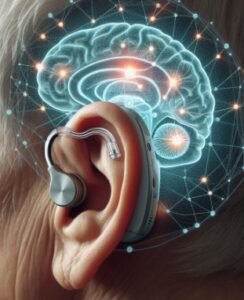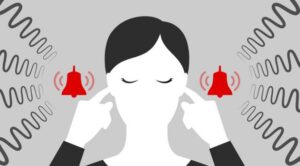Thinking about ordering a hearing aid or sound amplifier from a magazine or late-night TV advertiser? Doing so could delay the diagnosis of a treatable or serious ear condition and lead to further hearing loss or other complications.
“The problem might be as simple as a wax impaction blocking the ear canal, which is easily treated, or at the other end of the spectrum, it could be something as serious as a tumor pressing on the hearing nerve,” says Eric Mann, M.D., Ph.D., at the Food and Drug Administration (FDA).
Many cases of hearing loss are related to aging and exposure to loud noise and hearing aids might be the solution. But while a prescription from your physician is not required for most kinds of hearing aids, it’s important to see a health care professional not only to rule out other medical causes of hearing loss, but to ensure that hearing aids are properly fitted and come with follow-up care.
AIDS VERSUS AMPLIFIERS
Consumers should not confuse hearing aids with personal sound amplification products (PSAPs.) Hearing aids are intended to make up for impaired hearing. A PSAP, in contrast, is for people with normal hearing who have a desire or need to amplify sounds in certain situations. For example, a PSAP may be helpful for hunters or bird-watchers. They are often advertised as a way to listen to a television set to a low volume that won’t disturb someone sleeping nearby.
FDA regulates hearing aids as medical devices in order to assure their safety and effectiveness. PSAPs are not subject to medical device regulations.
Differences among hearing aids themselves are more complex, which is one of the many reasons a professional should be involved. Because hearing loss affects people in different ways, you need a device appropriate for your condition and tailored to your lifestyle.
BUYER BEWARE
FDA strongly encourages a medical evaluation before the purchase of a hearing aid. Hearing aid dispensers are required to tell you about the importance of a medical evaluation before they fit the aid. If you decide to forego an evaluation, you must sign a waiver.
Your primary care doctor may refer you to a specialist in ear, nose and throat conditions—an otolaryngologist (commonly known as an ENT specialist) — for evaluation and diagnosis of hearing loss.
IS A COCHLEAR IMPLANT A TYPE OF “HIGH-TECH” HEARING AID?
No. Hearing aids amplify sound in very sophisticated ways to enable a hearing impaired person to better use the residual hearing they possess. Modern hearing aids are very “high-tech” themselves and can work remarkably well even for patients with severe hearing loss. In order to work effectively the patient must have enough quantity and quality of residual natural hearing with which the hearing aid can work cooperatively.
This is not true of cochlear implants which are designed to work apart from an individual’s natural hearing when it has deteriorated beyond adequate usefulness with a hearing aid. A cochlear implant is a surgically implanted electrical stimulator which does not amplify sounds at all. Instead it acts like an artificial, prosthetic inner ear- converting sound to a complicated electrical signal that stimulates the nerve endings of the inner ear. The brain interprets this as sound even if the person is totally deaf.
Because the process to obtain and use a cochlear implant is so much more complicated and arduous than the use of modern hearing aids, it is always preferable to use hearing aids until such a time that they no longer can provide adequate everyday hearing improvement. Only an audiologist or ear specialist experienced in hearing aid and cochlear implant treatment can adequately counsel a patient as to their best option.
Call to schedule an appointment. We look forward to helping you hear better!



